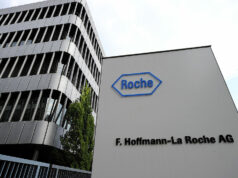A New York-based startup is advancing what it believes is a novel approach to harnessing the immune system to fight cancer.
Many approaches rely in some way on training blank T-cells to recognize and attack cancer cells. Founded in 2020, Loki Therapeutics is based on research that makes cancer cells look like targets the body already recognizes.
The idea is essentially to “wake up” the immune system and reactivate T-cells that carry the memory of childhood vaccinations against diseases like tetanus, measles and mumps. The strategy reflects the fact that T cells carry the memory of those diseases long after shots are given.
“If we can make the cancer look like tetanus, the body will kill it,” said Chris Bradley, founder and CEO of Loki. He started the company after meeting the researcher behind the idea, Claudia Gravekamp, an associate professor in microbiology and immunology at Albert Einstein College of Medicine in New York.
“Once I got my head around it, I was blown away by the potential for what she had discovered,” Bradley said in a phone interview.
Bradley met Gravekamp while looking for a new venture after he had sold a previous startup, Mana Health. Purchased by the cable giant Comcast in 2018, Mana focused on health data inter-operability.
Bradley’s new company has raised $1 million so far. The money has come from proceeds of the Mana sale and from angel investors, including the family of Reggie Bradford, a serial entrepreneur and mentor to Bradley.
Bradford died of pancreatic cancer in 2018, fueling Bradley’s interest in Gravekamp’s research. Her approach has shown promise in fighting pancreatic cancer in mice, Bradley said.
“With biotech, it’s always a bit of a gamble,” he said. “But all science points to this being potentially a breakthrough therapy for an extremely difficult-to-treat cancer.”
The company is looking to raise between $15 million and $20 million in Series A funding to help support clinical trials of its lead candidate, called AWAKE-LM-TT.
The therapy uses attenuated Listeria monocytogenes as a vector to transport a tetanus toxoid antigen from a childhood vaccine. The listeria is too weak to hurt the patient but it infects tumor cells and tricks them into expressing tetanus antigens. The company’s name, Loki, comes from the trickster god in Norse mythology.
The therapy can stand alone, Bradley said. But it appears to be more effective when paired with chemotherapy drugs, such as gemcitabine. Gemcitabine is used to treat patients with pancreatic, ovarian, bladder and other cancers.
Loki also is exploring its approach in tandem with checkpoint inhibitors. “We suspect that will be a very positive combination,” Bradley said.
The company hopes to begin Phase 1 trials in 2021 for both pancreatic and ovarian cancer, Bradley said. The company also is studying therapeutic candidates based on polio and measles vaccines.
Photo: royaltystockphoto, Getty Images








